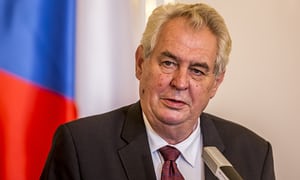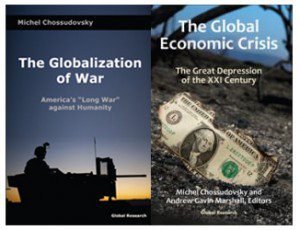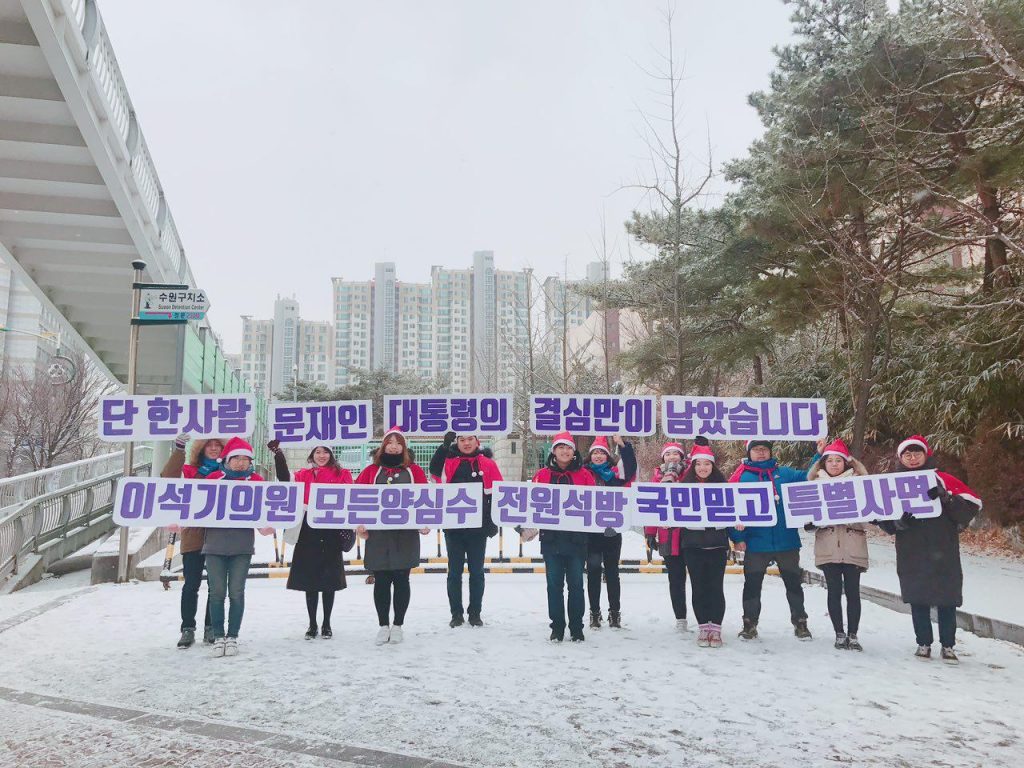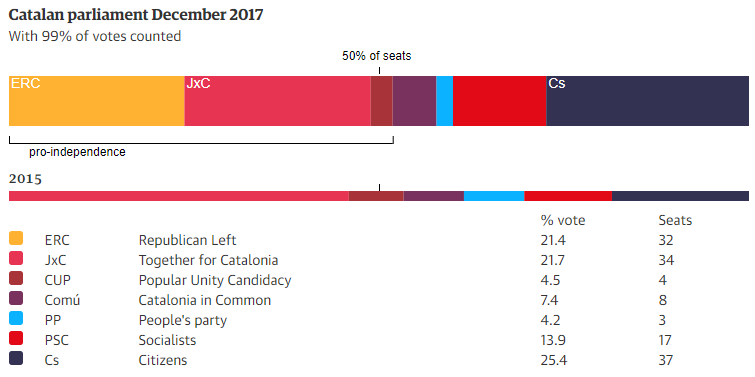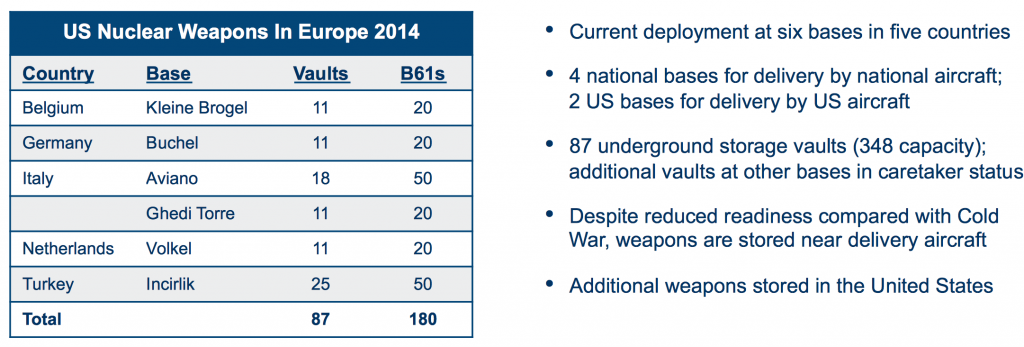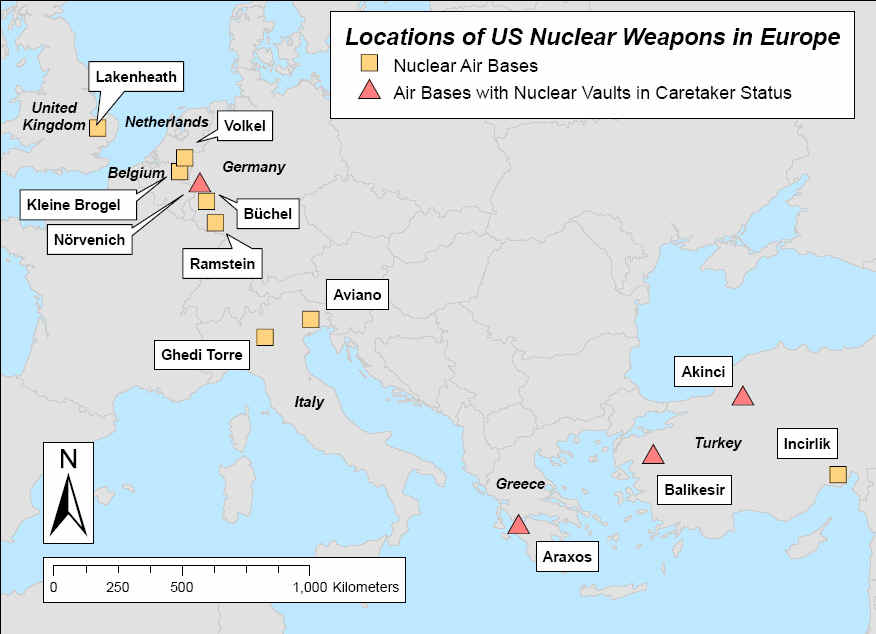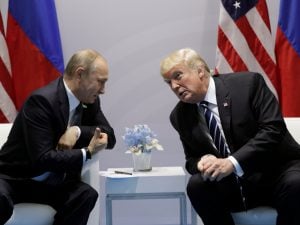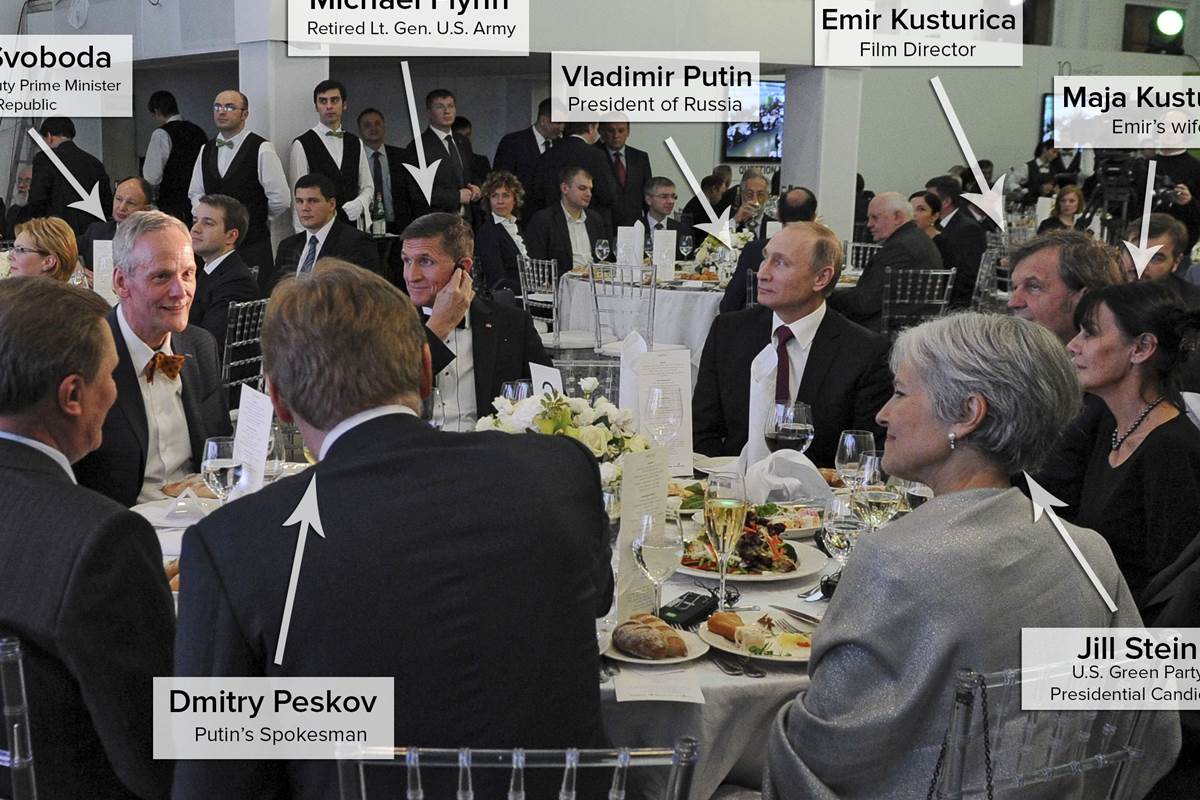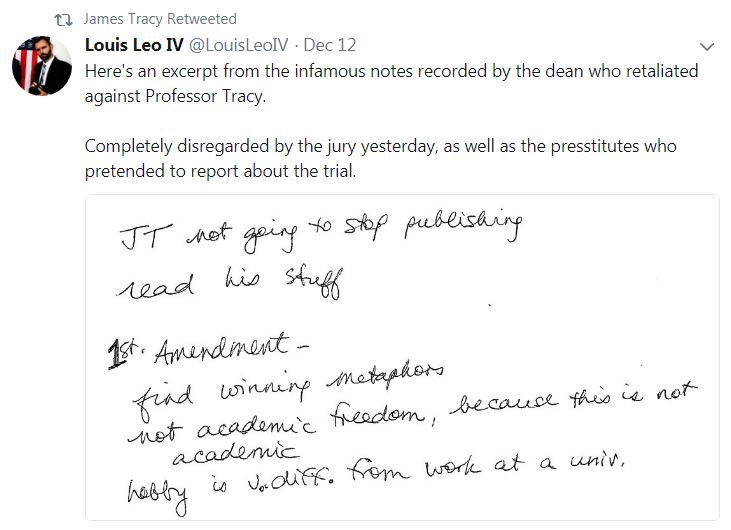Due to a historic data-dump on December 10th, the biggest swindle that occurred in the 20th Century (or perhaps ever) is now proven as a historical fact; and this swindle was done by the U.S. Government, against the Government and people of Russia, and it continues today and keeps getting worse under every U.S. President. It was secretly started by U.S. President George Herbert Walker Bush on the night of 24 February 1990; and, unless it becomes publicly recognized and repudiated so that it can stop, a nuclear war between the U.S. and all of NATO on one side, versus Russia on the other, is inevitable unless Russia capitulates before then, which would be vastly less likely than such a world-ending nuclear war now is.
This swindle has finally been displayed beyond question, by this, the first-ever complete release of the evidence. It demonstrates beyond any reasonable doubt (as you’ll verify yourself from the evidence here), that U.S. President G.H.W. Bush (and his team) lied through their teeth to Soviet President Mikhail Gorbachev (and his team) to end the Cold War on Russia’s side, when the U.S. team were secretly determined never to end it on the U.S.-and-NATO side until Russia itself is conquered. And this swindle continues today, and keeps getting worse and worse for Russians.
Until now, apologists for the U.S.-Government side have been able to get away with various lies about these lies, such as that there weren’t any, and that Gorbachev didn’t really think that the NATO issue was terribly important for Russia’s future national security anyway, and that the only limitation upon NATO’s future expansion that was discussed during the negotiations to end the Cold War concerned NATO not expanding itself eastward (i.e., closer to Russia) within Germany, not going beyond the then-existing dividing-line between West and East Germany — that no restriction against other east-bloc (Soviet-allied) nations ever being admitted into NATO was discussed, at all. The now-standard U.S. excuse that the deal concerned only Germany and not all of Europe is now conclusively disproven by the biggest single data-dump ever released about those negotiations.
This release on December 10th, by the National Security Archives, of a treasure-trove of all the existing documentation — 33 key documents — that’s been made available to them from numerous archives around the world, and brought together finally for the very first time complete and in chronological order, makes crystal clear that the American apologists’ lies about the lies WERE lies, not accurate accounts of the history, at all.

Chief Justice William Rehnquist administers the Presidential Oath of Office to George H.W. Bush during Inaugural ceremonies at the United States Capitol, January 20, 1989 (Source: Wikimedia Commons)
The assemblers at the National Security Archives assume that the numerous and repeated false promises that were made by Bush’s team were mistakes, instead of as what they so clearly were (but you’ll judge it here for yourself): strategic lies that were essential to Bush’s goal of America ultimately conquering a future isolated Russia that would then have little-to-no foreign allies, and all of whose then-existing-as-Soviet allied nations within the Soviet Union itself, and beyond, including all of its former Warsaw Pact allies, would have become ultimately swallowed up by the U.S.-NATO bloc, which then would be able to dictate, to a finally alone nation of Russia, terms of Russia’s ultimate surrender to the U.S. That view (which the National Security Archives documents to be clearly true, even as it denies it and says that only Bill Clinton and subsequent Presidents were to blame) is now exposed irrefutably to have been the U.S. plan ever since GHW Bush’s Presidency.
In other words: This release of documents about the turning-point, provides capstone evidence that the U.S. never really had been in the Cold War against communism; the U.S. was instead aiming ultimately to be the imperial nation, controlling the entire planet. For America’s Deep State, or what President Eisenhower famously warned about as the “military-industrial complex,” the Cold War was actually about empire, and about conquest, not really about ideology at all. This also had been shown, for example, by America’s having assisted so many ‘former’ Nazis to escape and come to America and to be paid now by the U.S. Government. After World War II, the top level of the U.S. power-structure became increasingly taken over by the military-industrial complex, America’s Deep State, so that increasingly the U.S. Government is in a condition of “perpetual war for perpetual peace” — a warfare state and economy: fascism.
Here, then, are highlights from this historic data-dump, presented in chronological order, just as in the release itself, and with a minimum of added commentary from myself [placed in brackets], but all stripping away here the dross of accompanying inconsequentials, and leaving only the golden steady core of stunningly successful American deceit of Russia. These are those highlights, from the December 10th data-dump, which the National Security Archives headlined “NATO Expansion: What Gorbachev Heard” and sub-headed “Declassified documents show security assurances against NATO expansion to Soviet leaders from Baker, Bush, Genscher, Kohl, Gates, Mitterrand, Thatcher, Hurd, Major, and Woerner,” so that the swindlers (or as the National Security Archive view them as having instead been blunderers) can become immediately recognized and known.
All of these documents pertain to negotiations that occurred throughout the month of February 1990, and a few relate also to the immediate aftermath. That’s the crucial period, when the geostrategic reality of today (which all the world now know to be a continuation of the Cold War, but this time against only Russia, and not against the Soviet Union and its Warsaw Pact) was actually created.
At the negotiations’ start, West Germany’s Chancellor Helmut Kohl’s agent, Germany’s Foreign Minister, Hans-Dietrich Genscher, stated publicly to the whole world, West Germany’s initial offer to the Soviet Union’s President Mikhail Gorbachev, and this offer did not include a simultaneous termination of both military alliances — the Soviets’ Warsaw Pact and America’s NATO — but instead only a promise that NATO would never absorb any additional territory, especially to the east of West Germany (and this publicly made promise was never kept). So: right from the get-go, there was no actual termination of the Cold War that was being proposed by the U.S. group, but only an arrangement that wouldn’t threaten Russia more than the then-existing split Germany did (and yet even that promise turned out to have been a lie):
Document 01
U.S. Embassy Bonn Confidential Cable to Secretary of State on the speech of the German Foreign Minister: Genscher Outlines His Vision of a New European Architecture.
1990-02-01
Source: U.S. Department of State. FOIA Reading Room. Case F-2015 10829
“This U.S. Embassy Bonn cable reporting back to Washington details both of Hans-Dietrich Genscher’s proposals – that NATO would not expand to the east, and that the former territory of the GDR in a unified Germany would be treated differently from other NATO territory.”
Document 02
Mr. Hurd to Sir C. Mallaby (Bonn). Telegraphic N. 85: Secretary of State’s Call on Herr Genscher: German Unification.
1990-02-06
Source: Documents on British Policy Overseas, series III, volume VII: German Unification, 1989-1990.
“The U.S. State Department’s subsequent view of the German unification negotiations, expressed in a 1996 cable sent to all posts, mistakenly asserts that the entire negotiation over the future of Germany limited its discussion of the future of NATO to the specific arrangements over the territory of the former GDR.” [The National Security Archives’ calling that Bill-Clinton-era State Department cable ‘mistaken’ is unsupported by, and even contradicted by, the evidence they actually present from the February 1990 negotiations.]
Document 03
Memorandum from Paul H. Nitze to George H.W. Bush about “Forum for Germany” meeting in Berlin.
1990-02-06
Source: George H. W. Bush Presidential Library
“This concise note to President Bush from one of the Cold War’s architects, Paul Nitze (based at his namesake Johns Hopkins University School of International Studies), captures the debate over the future of NATO in early 1990. Nitze relates that Central and Eastern European leaders attending the ‘Forum for Germany’ conference in Berlin were advocating the dissolution of both the superpower blocs, NATO and the Warsaw Pact, until he (and a few western Europeans) turned around that view and instead emphasized the importance of NATO as the basis of stability and U.S. presence in Europe.”
Document 04
Memorandum of Conversation between James Baker and Eduard Shevardnadze in Moscow.
1990-02-09
Source: U.S. Department of State, FOIA 199504567 (National Security Archive Flashpoints Collection, Box 38)
“Baker tells the Soviet foreign minister, ‘A neutral Germany would undoubtedly acquire its own independent nuclear capability. However, a Germany that is firmly anchored in a changed NATO, by that I mean a NATO that is far less of [a] military organization, much more of a political one, would have no need for independent capability. There would, of course, have to be iron-clad guarantees that NATO’s jurisdiction or forces would not move eastward.’”
Document 05
Memorandum of conversation between Mikhail Gorbachev and James Baker in Moscow.
1990-02-09
Source: U.S. Department of State, FOIA 199504567 (National Security Archive Flashpoints Collection, Box 38)
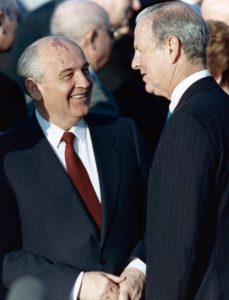
Soviet leader Mikhail Gorbachev and Secretary of State James Baker
“Even with (unjustified) redactions by U.S. classification officers, this American transcript of perhaps the most famous U.S. assurance to the Soviets on NATO expansion confirms the Soviet transcript of the same conversation. Repeating what Bush said at the Malta summit in December 1989, Baker tells Gorbachev: ‘The President and I have made clear that we seek no unilateral advantage in this process’ of inevitable German unification. Baker goes on to say, ‘We understand the need for assurances to the countries in the East. If we maintain a presence in a Germany that is a part of NATO, there would be no extension of NATO’s jurisdiction for forces of NATO one inch to the east.’”
Document 06
Record of conversation between Mikhail Gorbachev and James Baker in Moscow. (Excerpts)
1990-02-09
Source: Gorbachev Foundation Archive, Fond 1, Opis 1.
“The key exchange takes place when Baker asks whether Gorbachev would prefer ‘a united Germany outside of NATO, absolutely independent and without American troops; or a united Germany keeping its connections with NATO, but with the guarantee that NATO’s jurisdiction or troops will not spread east of the present boundary.’ … Turning to German unification, Baker assures Gorbachev that ‘neither the president nor I intend to extract any unilateral advantages from the processes that are taking place,’ and that the Americans understand the importance for the USSR and Europe of guarantees that ‘not an inch of NATO’s present military jurisdiction will spread in an eastern direction.’”
Document 07
Memorandum of conversation between Robert Gates and Vladimir Kryuchkov in Moscow.
1990-02-09
Source: George H.W. Bush Presidential Library, NSC Scowcroft Files, Box 91128, Folder “Gorbachev (Dobrynin) Sensitive.”
“This conversation is especially important because subsequent researchers have speculated that Secretary Baker may have been speaking beyond his brief in his ‘not one inch eastward’ conversation with Gorbachev. Robert Gates, the former top CIA intelligence analyst and a specialist on the USSR, here tells his kind-of-counterpart, the head of the KGB, in his office at the Lubyanka KGB headquarters, exactly what Baker told Gorbachev that day at the Kremlin: not one inch eastward. At that point, Gates was the top deputy to the president’s national security adviser, Gen. Brent Scowcroft, so this document speaks to a coordinated approach by the U.S. government to Gorbachev.”
Document 08
Letter from James Baker to Helmut Kohl
1990-02-10
Source: Deutsche Enheit Sonderedition und den Akten des Budeskanzleramtes 1989/90
“Baker especially remarks on Gorbachev’s noncommittal response to the question about a neutral Germany versus a NATO Germany with pledges against eastward expansion.”
Document 09
Memorandum of conversation between Mikhail Gorbachev and Helmut Kohl
1990-02-10
Source: Mikhail Gorbachev i germanskii vopros, edited by Alexander Galkin and Anatoly Chernyaev, (Moscow: Ves Mir, 2006)
“Prepared by Baker’s letter and his own foreign minister’s Tutzing formula, Kohl early in the conversation assures Gorbachev, ‘We believe that NATO should not expand the sphere of its activity. We have to find a reasonable resolution. I correctly understand the security interests of the Soviet Union, and I realize that you, Mr. General Secretary, and the Soviet leadership will have to clearly explain what is happening to the Soviet people.’ Later the two leaders tussle about NATO and the Warsaw Pact, with Gorbachev commenting, ‘They say what is NATO without the FRG. But we could also ask: What is the WTO without the GDR?’ When Kohl disagrees, Gorbachev calls merely for ‘reasonable solutions that do not poison the atmosphere in our relations’ and says this part of the conversation should not be made public.”
Document 10-1
Teimuraz Stepanov-Mamaladze notes from Conference on Open Skies, Ottawa, Canada.
1990-02-12
Source: Hoover Institution Archive, Stepanov-Mamaladze Collection.
“Notes from the first days of the conference are very brief, but they contain one important line that shows that Baker offered the same assurance formula in Ottawa as he did in Moscow: ‘And if U[nited] G[ermany] stays in NATO, we should take care about nonexpansion of its jurisdiction to the East.’”
Document 10-2
Teimuraz Stepanov-Mamaladze diary, February 12, 1990.
1990-02-12
Source: Hoover Institution Archive, Stepanov-Mamaladze Collection.
“This diary entry is evidence, from a critical perspective, that the United States and West Germany did give Moscow concrete assurances about keeping NATO to its current size and scope. In fact, the diary further indicates that at least in Shevardnadze’s view those assurances amounted to a deal – which Gorbachev accepted.”
Document 10-3
Teimuraz Stepanov-Mamaladze diary, February 13, 1990.
1990-02-13
Source: Hoover Institution Archive, Stepanov-Mamaladze Collection.
“Stepanov-Mamaladze describes difficult negotiations about the exact wording on the joint statement. … ‘During the day, active games were taking place between all of them. E.A. [Shevardnadze] met with Baker five times, twice with Genscher, talked with Fischer [GDR foreign minister], Dumas [French foreign minister], and the ministers of the ATS countries,’ and finally, the text of the settlement was settled.”
Document 11
U.S. State Department, “Two Plus Four: Advantages, Possible Concerns and Rebuttal Points.”
1990-02-21
Source: State Department FOIA release, National Security Archive Flashpoints Collection, Box 38.
“The American fear was that the West Germans would make their own deal with Moscow for rapid unification, giving up some of the bottom lines for the U.S., mainly membership in NATO.”
Document 12-1
Memorandum of conversation between Vaclav Havel and George Bush in Washington.
1990-02-20
“Bush took the opportunity to lecture the Czech leader about the value of NATO and its essential role as the basis for the U.S. presence in Europe.”
Document 12-2
Memorandum of conversation between Vaclav Havel and George Bush in Washington.
1990-02-21
“Bush’s request to Havel to pass the message to Gorbachev that the Americans support him personally, and that ‘We will not conduct ourselves in the wrong way by saying “we win, you lose.” Emphasizing the point, Bush says, ‘tell Gorbachev that … I asked you to tell Gorbachev that we will not conduct ourselves regarding Czechoslovakia or any other country in a way that would complicate the problems he has so frankly discussed with me.’ The Czechoslovak leader adds his own caution to the Americans about how to proceed with the unification of Germany and address Soviet insecurities. Havel remarks to Bush, ‘It is a question of prestige.’”
[I think that Havel was deceived to believe that “prestige” was the issue here. This is what the U.S. team wanted the Soviet team to think was the U.S. team’s chief motivation for wanting NATO to continue. But subsequent historical events, especially the U.S. team’s proceeding under President Bill Clinton and up through Donald Trump to expand NATO to include, by now, virtually all of the Warsaw Pact and of the Soviet Union itself except for Russia, in NATO, proves that U.S. aggression against Russia has been the U.S. aim from the start, and the U.S. Government has been working assiduously at this plan for ultimate conquest. I think that Havel’s use there of the word “prestige” was very revealing of the total snookering of Gorbachev that Bush achieved. Gorbachev and his team trusted the U.S. side. Russia has paid dearly for that. If the U.S. side continues and NATO isn’t voluntarily terminated by the U.S. Government, then WW III will be the inevitable result. NATO will end either after the ‘conquest’ of Russia or before that WW-III ‘conquest’ (likelier to be actually destruction of the entire world) even happens. The world, today, will decide which. NATO should have ended in 1991, when the Soviet Union and its Warsaw Pact did.]
Document 13
Memorandum of Conversation between Helmut Kohl and George Bush at Camp David.
1990-02-24
Source:
“The Bush administration’s main worry about German unification as the process accelerated in February 1990 was that the West Germans might make their own deal bilaterally with the Soviets (see Document 11) and might be willing to bargain away NATO membership. … The German chancellor arrives at Camp David without [West German Foreign Minister] Genscher because the latter does not entirely share the Bush-Kohl position on full German membership in NATO, and he recently angered both leaders by speaking publicly about the CSCE as the future European security mechanism.[11] … Bush’s priority is to keep the U.S. presence, especially the nuclear umbrella, in Europe: ‘if U.S. nuclear forces are withdrawn from Germany, I don’t see how we can persuade any other ally on the continent to retain these weapons.’ … [Bush wanted Lockheed and other U.S. weapons-makers to continue booming after the Cold War ‘ended’ — not for the nuclear-weapons market to end. Bush continued:] ‘We have weird thinking in our Congress today, ideas like this peace dividend. We can’t do that in these uncertain times.’ [For the U.S. team, ‘perpetual war for perpetual peace’ would be the way forward; a ‘peace dividend’ was the last thing they wanted — ever.] … At one point in the conversation, Bush seems to view his Soviet counterpart not as a partner but as a defeated enemy. Referring to talk in some Soviet quarters against Germany staying in NATO, he says: ‘To hell with that. We prevailed and they didn’t. We cannot let the Soviets clutch victory from the jaws of defeat.’” [I earlier had placed that crucial secret statement from Bush into historical perspective, under the headline, “How America Double-Crossed Russia and Shamed the West”.]
Document 14
Memorandum of conversation between George Bush and Eduard Shevardnadze in Washington.
1990-04-06
“Shevardnadze mentions the upcoming CSCE summit and the Soviet expectation that it will discuss the new European security structures. Bush does not contradict this but ties it to the issues of the U.S. presence in Europe and German unification in NATO. He declares that he wants to ‘contribute to stability and to the creation of a Europe whole and free, or as you call it, a common European home. A[n] idea that is very close to our own.’ The Soviets — wrongly — interpret this as a declaration that the U.S. administration shares Gorbachev’s idea.”
Document 15
Sir R. Braithwaite (Moscow). Telegraphic N. 667: “Secretary of State’s Meeting with President Gorbachev.”
1990-04-11
Source: Documents on British Policy Overseas, series III, volume VII: German Unification, 1989-1990. (Foreign and Commonwealth Office.
“Ambassador Braithwaite’s telegram summarizes the meeting between Secretary of State for Foreign and Commonwealth Affairs Douglas Hurd and President Gorbachev, noting Gorbachev’s ‘expansive mood.’ Gorbachev asks the secretary to pass his appreciation for Margaret Thatcher’s letter to him after her summit with Kohl, at which, according to Gorbachev, she followed the lines of policy Gorbachev and Thatcher discussed in their recent phone call, on the basis of which the Soviet leader concluded that ‘the British and Soviet positions were very close indeed.’”
Document 16
Valentin Falin Memorandum to Mikhail Gorbachev (Excerpts)
1990-04-18
Source: Mikhail Gorbachev i germanskii vopros, edited by Alexander Galkin and Anatoly Chernyaev, (Moscow: Ves Mir, 2006)
“This memorandum from the Central Committee’s most senior expert on Germany sounds like a wake-up call for Gorbachev. Falin puts it in blunt terms: while Soviet European policy has fallen into inactivity and even ‘depression after the March 18 elections in East Germany, and Gorbachev himself has let Kohl speed up the process of unification, his compromises on Germany in NATO can only lead to the slipping away of his main goal for Europe – the common European home. ‘Summing up the past six months, one has to conclude that the “common European home,” which used to be a concrete task the countries of the continent were starting to implement, is now turning into a mirage.’ While the West is sweet-talking Gorbachev into accepting German unification in NATO, Falin notes (correctly) that ‘the Western states are already violating the consensus principle by making preliminary agreements among themselves’ regarding German unification and the future of Europe that do not include a ‘long phase of constructive development.’ He notes the West’s ‘intensive cultivation of not only NATO but also our Warsaw Pact allies’ with the goal to isolate the USSR. … He also suggests using arms control negotiations in Vienna and Geneva as leverage if the West keeps taking advantage of Soviet flexibility. … The main idea of the memo is to warn Gorbachev not to be naive about the intentions of his American partners: ‘The West is outplaying us, promising to respect the interests of the USSR, but in practice, step by step, separating us from “traditional Europe”.’”
Document 17
James A. Baker III, Memorandum for the President, “My meeting with Shevardnadze.”
1990-05-04
Source: George H. W. Bush Presidential Library, NSC Scowcroft Files, Box 91126, Folder “Gorbachev (Dobrynin) Sensitive 1989 – June 1990 [3]”
“Baker reports, ‘I also used your speech and our recognition of the need to adapt NATO, politically and militarily, and to develop CSCE to reassure Shevardnadze that the process would not yield winners and losers. Instead, it would produce a new legitimate European structure – one that would be inclusive, not exclusive.’”
Document 18
Record of conversation between Mikhail Gorbachev and James Baker in Moscow.
1990-05-18
Source: Gorbachev Foundation Archive, Fond 1
“When Gorbachev mentions the need to build new security structures to replace the blocs, Baker lets slip a personal reaction that reveals much about the real U.S. position on the subject: ‘It’s nice to talk about pan-European security structures, the role of the CSCE. It is a wonderful dream, but just a dream. In the meantime, NATO exists. …’ Gorbachev suggests that if the U.S. side insists on Germany in NATO, then he would ‘announce publicly that we want to join NATO too.’ Shevardnadze goes further, offering a prophetic observation: ‘if united Germany becomes a member of NATO, it will blow up perestroika. Our people will not forgive us. People will say that we ended up the losers, not the winners.’”
Document 19
Record of conversation between Mikhail Gorbachev and Francois Mitterrand (excerpts).
1990-05-25
Source: Mikhail Gorbachev i germanskii vopros
“[Miterrand] implies that NATO is not the key issue now and could be drowned out in further negotiations; rather, the important thing is to ensure Soviet participation in new European security system. He repeats that he is ‘personally in favor of gradually dismantling the military blocs.’ Gorbachev expresses his wariness and suspicion about U.S. effort to ‘perpetuate NATO’.” [This was extraordinary documentation that the U.S. team had deceived Gorbachev to think that they were trying to suggest to him that both military alliances — NATO and Warsaw Pact — would be ended, but that Gorbachev was “wary” and “suspicious” that maybe they didn’t really mean it. Stunning.]
Document 20
Letter from Francois Mitterrand to George Bush
1990-05-25
Source: George H.W. Bush Presidential Library, NSC Scowcroft Files
True to his word, Mitterrand writes a letter to George Bush describing Gorbachev’s predicament on the issue of German unification in NATO, calling it genuine, not ‘fake or tactical.’ He warns the American president against doing it as a fait accompli without Gorbachev’s consent implying that Gorbachev might retaliate on arms control (exactly what Mitterrand himself – and Falin earlier – suggested in his conversation). Mitterrand argues in favor of a formal ‘peace settlement in International law,’and informs Bush that in his conversation with Gorbachev he “‘indicated that, on the Western side, we would certainly not refuse to detail the guarantees that he would have a right to expect for his country’s security.’”
Document 21
Record of conversation between Mikhail Gorbachev and George Bush. White House, Washington D.C.
1990-05-31
Source: Gorbachev Foundation Archive, Moscow, Fond 1, opis 1.[12]
“Baker repeats the nine assurances made previously by the administration, including that the United States now agrees to support the pan-European process and transformation of NATO in order to remove the Soviet perception of threat. Gorbachev’s preferred position is Germany with one foot in both NATO and the Warsaw Pact — the ‘two anchors’ — creating a kind of associated membership. Baker intervenes, saying that ‘the simultaneous obligations of one and the same country toward the WTO and NATO smack of schizophrenia.’ After the U.S. president frames the issue in the context of the Helsinki agreement, Gorbachev proposes that the German people have the right to choose their alliance — which he in essence already affirmed to Kohl during their meeting in February 1990. Here, Gorbachev significantly exceeds his brief, and incurs the ire of other members of his delegation, especially the official with the German portfolio, Valentin Falin, and Marshal Sergey Akhromeyev. Gorbachev issues a key warning about the future: ‘If the Soviet people get an impression that we are disregarded in the German question, then all the positive processes in Europe, including the negotiations in Vienna [over conventional forces], would be in serious danger. This is not just bluffing. It is simply that the people will force us to stop and to look around.’ It is a remarkable admission about domestic political pressures from the last Soviet leader.”
Document 22
Letter from Mr. Powell (N. 10) to Mr. Wall: Thatcher-Gorbachev memorandum of conversation.
1990-06-08
Source: Documents on British Policy Overseas, series III, volume VII: German Unification, 1989-1990. (Foreign and Commonwealth Office
“Gorbachev says he wants to ‘be completely frank with the Prime Minister’ that if the processes were to become one-sided, ‘there could be a very difficult situation [and the] Soviet Union would feel its security in jeopardy.’ Thatcher responds firmly that it was in nobody’s interest to put Soviet security in jeopardy: ‘we must find ways to give the Soviet Union confidence that its security would be assured.’”
Document 23
Record of Conversation between Mikhail Gorbachev and Helmut Kohl, Moscow (Excerpts).
1990-07-15
Source: Mikhail Gorbachev i germanskii vopros
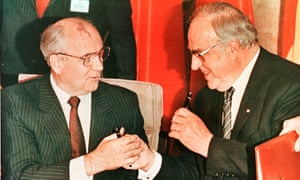
Mikhail Gorbachev and Helmut Kohl
“This key conversation between Chancellor Kohl and President Gorbachev sets the final parameters for German unification. Kohl talks repeatedly about the new era of relations between a united Germany and the Soviet Union, and how this relationship would contribute to European stability and security. Gorbachev demands assurances on non-expansion of NATO: ‘We must talk about the nonproliferation of NATO military structures to the territory of the GDR, and maintaining Soviet troops there for a certain transition period.’ The Soviet leader notes earlier in the conversation that NATO has already begun transforming itself. For him, the pledge of NATO non-expansion to the territory of the GDR in spirit means that NATO would not take advantage of the Soviet willingness to compromise on Germany.”
[Of course, Gorbachev never knew that Bush had instructed his agents, on the night of 24 February 1990, “To hell with that. We prevailed and they didn’t. We cannot let the Soviets clutch victory from the jaws of defeat,” indicating that for the U.S. aristocracy, conquest of an isolated Russia was the actual ultimate aim — there would be no actual end of the Cold War until the U.S. would conquer Russia itself — grab the whole thing. Gorbachev was, it is now absolutely undeniable, conned.]
Document 24
Memorandum of Telephone Conversation between Mikhail Gorbachev and George Bush
1990-07-17
“In this phone call, Bush expands on Kohl’s security assurances and reinforces the message from the London Declaration: ‘So what we tried to do was to take account of your concerns expressed to me and others, and we did it in the following ways: by our joint declaration on non-aggression; in our invitation to you to come to NATO; in our agreement to open NATO to regular diplomatic contact with your government and those of the Eastern European countries; and our offer on assurances on the future size of the armed forces of a united Germany – an issue I know you discussed with Helmut Kohl. We also fundamentally changed our military approach on conventional and nuclear forces. We conveyed the idea of an expanded, stronger CSCE with new institutions in which the USSR can share and be part of the new Europe.’”
Document 25
September 12 Two-Plus-Four Ministerial in Moscow: Detailed account [includes text of the Treaty on the Final Settlement with Respect to Germany and Agreed Minute to the Treaty on the special military status of the GDR after unification]
1990-11-02
Source: George H.W. Bush Presidential Library, NSC Condoleezza Rice Files
“the agreed text of the final treaty on German unification. The treaty codified what Bush had earlier offered to Gorbachev – ‘special military status’ for the former GDR territory. At the last minute, British and American concerns that the language would restrict emergency NATO troop movements there forced the inclusion of a ‘minute’ that left it up to the newly unified and sovereign Germany what the meaning of the word ‘deployed’ should be. Kohl had committed to Gorbachev that only German NATO troops would be allowed on that territory after the Soviets left, and Germany stuck to that commitment, even though the ‘minute’ was meant to allow other NATO troops to traverse or exercise there at least temporarily. Subsequently, Gorbachev aides such as Pavel Palazhshenko would point to the treaty language to argue that NATO expansion violated the ‘spirit’ of this Final Settlement treaty.”
[Obviously, now, it was no “Final Settlement” at all.]
Document 26
U.S. Department of State, European Bureau: Revised NATO Strategy Paper for Discussion at Sub-Ungroup Meeting
1990-10-22
Source: George H. W. Bush Presidential Library, NSC Heather Wilson Files,
“Joint Chiefs and other agencies, posits that ‘[a] potential Soviet threat remains and constitutes one basic justification for the continuance of NATO.’ At the same time, in the discussion of potential East European membership in NATO, the review suggests that ‘In the current environment, it is not in the best interest of NATO or of the U.S. that these states be granted full NATO membership and its security guarantees.’ The United States does not ‘wish to organize an anti-Soviet coalition whose frontier is the Soviet border’ – not least because of the negative impact this might have on reforms in the USSR. NATO liaison offices would do for the present time, the group concluded, but the relationship will develop in the future. In the absence of the Cold War confrontation, NATO ‘out of area’ functions will have to be redefined.” [Clearly, they wanted the revolving door to land them in high-paid positions supported by U.S. weapons-making corporations, not just in retirements with only military pensions. Or else, they just loved war and, like Bush, didn’t want there to be any “peace dividend.”]
Document 27
James F. Dobbins, State Department European Bureau, Memorandum to National Security Council: NATO Strategy Review Paper for October 29 Discussion.
1990-10-25
Source: George H. W. Bush Presidential Library: NSC Philip Zelikow Files
“This concise memorandum comes from the State Department’s European Bureau as a cover note for briefing papers for a scheduled October 29, 1990 meeting on the issues of NATO expansion and European defense cooperation with NATO. Most important is the document’s summary of the internal debate within the Bush administration, primarily between the Defense Department (specifically the Office of the Secretary of Defense, Dick Cheney) and the State Department. On the issue of NATO expansion, OSD ‘wishes to leave the door ajar’ while State ‘prefers simply to note that discussion of expanding membership is not on the agenda….’ The Bush administration effectively adopts State’s view in its public statements, yet the Defense view would prevail in the next administration.”
[This allegation, by the National Security Archives, fundamentally misrepresents, by its underlying assumption that the Bush Administration’s statements such as that NATO would move “not one inch to the east” weren’t lies but instead reflected Bush’s actual intention. They ignore altogether Bush’s having secretly told his vassals on the crucial night of 24 February 1990, “To hell with that. We prevailed and they didn’t. We cannot let the Soviets clutch victory from the jaws of defeat.” Gorbachev believed that this was to be a win-win game; but, the U.S. side were now under secret instructions that it’s to be purely more of the win-lose game, and that now a lone Russia would end up being its ultimate loser. The despicable statement by the National Security Archives, “yet the Defense view would prevail in the next administration,” presumes that it didn’t actually already ‘prevail’ in the Bush Administration itself. It prevailed actually in George Herbert Walker Bush himself, and not only in his Defense Department. Bush brilliantly took advantage of Gorbachev’s decency and expectation that Bush, like himself, was decent. Bush lied — and his team and their successors ever since have been carrying out his vicious plan. The National Security Archives downplays to insignificance Bush’s crucial instruction to his people, “To hell with that. We prevailed and they didn’t. We cannot let the Soviets clutch victory from the jaws of defeat.” That statement, at that crucial moment, is what enables us to understand what was actually going on throughout these negotiations. The Archives’ blaming only Bill Clinton and the other Presidents after Bush is a despicable lie. And it wasn’t just “the Defense view” — Cheney — who prevailed within the Bush Administration there. Cheney, like Baker, were doing what GHW Bush had hired them to do. Baker’s job was to lie. If it weren’t, then he’d have told Gorbachev the next day not to trust what the Bush team were saying, but instead to demand everything to be put in writing in the final document, and to assume the worst regarding anything that the Bush team were refusing to put in writing in the final document. Baker was a lawyer, and a very skilled liar, who was just doing his job for Bush. For some inexplicable reason, the National Security Archives simply assumes otherwise.]
Document 28
Ambassador Rodric Braithwaite diary, 05 March 1991
1991-03-05
Source: Rodric Braithwaite personal diary
“British Ambassador Rodric Braithwaite was present for a number of the assurances given to Soviet leaders in 1990 and 1991 about NATO expansion. Here, Braithwaite in his diary describes a meeting between British Prime Minister John Major and Soviet military officials, led by Minister of Defense Marshal Dmitry Yazov. The meeting took place during Major’s visit to Moscow and right after his one-on-one with President Gorbachev. During the meeting with Major, Gorbachev had raised his concerns about the new NATO dynamics: ‘Against the background of favorable processes in Europe, I suddenly start receiving information that certain circles intend to go on further strengthening NATO as the main security instrument in Europe. Previously they talked about changing the nature of NATO, about transformation of the existing military-political blocs into pan-European structures and security mechanisms. And now suddenly again [they are talking about] a special peace-keeping role of NATO. They are talking again about NATO as the cornerstone. This does not sound complementary to the common European home that we have started to build.’ Major responded: ‘I believe that your thoughts about the role of NATO in the current situation are the result of misunderstanding. We are not talking about strengthening of NATO.’”
Document 29
Paul Wolfowitz Memoranda of Conversation with Vaclav Havel and Lubos Dobrovsky in Prague.
1991-04-27
Source: U.S. Department of Defense, FOIA release 2016
“These memcons from April 1991 provide the bookends for the ‘education of Vaclav Havel’ on NATO (see Documents 12-1 and 12-2 above). U.S. Undersecretary of Defense for Policy Paul Wolfowitz included these memcons in his report to the NSC and the State Department about his attendance at a conference in Prague on ‘The Future of European Security,’ on April 24-27, 1991. During the conference Wolfowitz had separate meetings with Havel and Minister of Defense Dobrovsky. In the conversation with Havel, Wolfowitz thanks him for his statements about the importance of NATO and US troops in Europe. … In conversation with Dobrovsky, Wolfowitz remarks that ‘the very existence of NATO was in doubt a year ago.’“
Document 30
Memorandum to Boris Yeltsin from Russian Supreme Soviet delegation to NATO HQs
1991-07-01
Source: State Archive of the Russian Federation (GARF), Fond 10026, Opis 1
“This document is important for describing the clear message in 1991 from the highest levels of NATO – Secretary General Manfred Woerner – that NATO expansion was not happening. The audience was a Russian Supreme Soviet delegation, which in this memo was reporting back to Boris Yeltsin (who in June had been elected president of the Russian republic, largest in the Soviet Union), but no doubt Gorbachev and his aides were hearing the same assurance at that time. The emerging Russian security establishment was already worried about the possibility of NATO expansion, so in June 1991 this delegation visited Brussels to meet NATO’s leadership, hear their views about the future of NATO, and share Russian concerns. Woerner had given a well-regarded speech in Brussels in May 1990 in which he argued: ‘The principal task of the next decade will be to build a new European security structure, to include the Soviet Union and the Warsaw Pact nations. The Soviet Union will have an important role to play in the construction of such a system. If you consider the current predicament of the Soviet Union, which has practically no allies left, then you can understand its justified wish not to be forced out of Europe.’ Now in mid-1991, Woerner responds to the Russians by stating that he personally and the NATO Council are both against expansion — ’13 out of 16 NATO members share this point of view’ — and that he will speak against Poland’s and Romania’s membership in NATO to those countries’ leaders as he has already done with leaders of Hungary and Czechoslovakia.”
Investigative historian Eric Zuesse is the author, most recently, of They’re Not Even Close: The Democratic vs. Republican Economic Records, 1910-2010, and of CHRIST’S VENTRILOQUISTS: The Event that Created Christianity.
This article was originally published by Strategic Culture Foundation.
Featured image is from SCF.
 The second book, however, was, by far, the more influential: Charles Dickens’ A Christmas Carol. When Dickens is dubbed, “the man who invented Christmas,” it is not far from the truth. For the American cultural celebration of Christmas largely began through the popularity of Dickens’ classic story. That same fact, though, accounts for much of the non-religious aspects of America’s celebration.
The second book, however, was, by far, the more influential: Charles Dickens’ A Christmas Carol. When Dickens is dubbed, “the man who invented Christmas,” it is not far from the truth. For the American cultural celebration of Christmas largely began through the popularity of Dickens’ classic story. That same fact, though, accounts for much of the non-religious aspects of America’s celebration.



